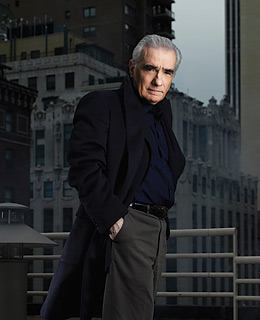
Martin Scorsese
He has, at last, his long-deserved Oscar. And the picture for which he won it, The Departed, is the largest commercial success Martin Scorsese has ever enjoyed. Can we imagine Marty, happy at last, resting on his belated laurels? Not really. At the moment he is working on three scripts and a pair of documentaries. He's editing a film about the Rolling Stones before heading to the Cannes Film Festival to announce an expansion of his Film Foundation, devoted to the preservation of ever deteriorating movies.
Movie history is one of his grand passions, but at some early point in his 65-year-old life someone pushed Scorsese's fast-forward button, and it has been stuck there ever since. He can do serene (Kundun), and he can do elegant (The Age of Innocence), but when we summon up a typical Scorsese movie, we think Taxi Driver or Raging Bull—about radically disaffected (not to say psychopathic) males shunned by their communities and engaged in some blood ritual to claim their self-esteem. These tormented figures, he insists, all project something of his younger self—a sickly, lonely, religiously yearning child of New York City's Little Italy. Making films as driven as his high-speed conversations was his salvation. You can't imagine him stopping. And you can't imagine him content either. "Directing," he has said, "you have to keep your feelings away. So I have to pull back, which makes shooting an excruciating experience." But it will soon reclaim him. For his ritualized movies—they are never merely realistic—are his addiction, his passion and, just possibly, his redemption.